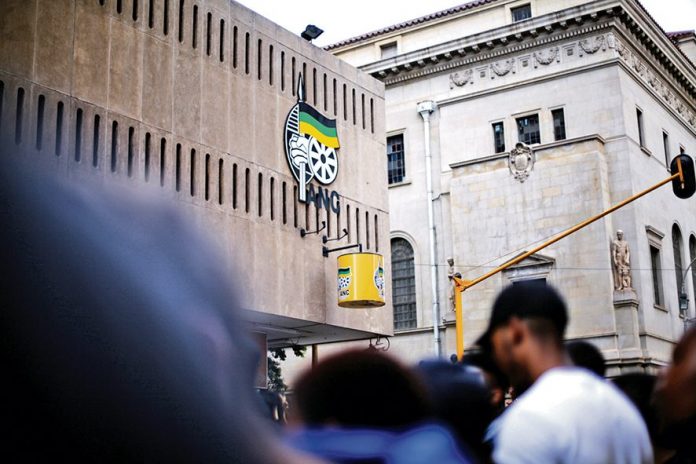A member of the ANC’s international relations subcommittee, Abner Mosaase, shared an internal critique demanding that the party voluntarily cull its dominant political power and champion a new multi-party system as it prepares for a crucial leadership summit later this year.
The demands, articulated by Mosaase in his personal capacity, frame the ANC’s forthcoming national general council (NGC) as a final opportunity for self-correction.
In a stark warning, Mosaase declared that “the time for the supremacy of one organisation above the country is no more”, capturing a growing sentiment that the party’s internal decay is now a direct threat to national stability.
The NGC, scheduled for December, is typically a mid-term policy forum. However, critics are framing this year’s NGC as a referendum on the ANC’s very survival.
The central, oversimplified proposition is that South Africa’s deep-seated governance crises—from chronic power cuts to crumbling infrastructure—stem from a lack of political competition.
The solution, according to this worldview, is to break the ANC’s monopoly and force it to compete in a vibrant marketplace of political ideas.
The critique points to a “leadership deficit” within the ANC so severe that it predicates the need for its dilution.
This argument, while politically explosive, is gaining traction among a business community and electorate fatigued by corruption and incompetence.
Crisis of moral legitimacy
The logic is straightforward: a dominant party, like a monopoly corporation, grows bloated, unresponsive, and inefficient without competitive pressure.
Mosaase’s appeal goes beyond political mechanics to address a crisis of moral legitimacy.
He calls for a “core of verified South Africans” to guide this transition—a clear indictment of the current political class and a yearning for leaders untouched by the “ills” of racism, ethnic mobilisation, and corruption.
This language reveals a profound disillusionment, suggesting that trust in the ANC’s brand has been irreparably broken.
Further illustrating the internal decay, Mosaase describes the party’s secretariat leadership as “multiple decibel howlers who outshine any gossiper in a fish market”.
This visceral analogy underscores a rejection of the current political culture, which is perceived as chaotic, undignified, and more focused on loud internal squabbles than on sober governance.
For investors and citizens alike, this paints a picture of an institution that is fundamentally unruly and incapable of managing a modern economy.
Pivotal moment
The proposed remedies are as radical as the diagnosis. They include a wholesale “upgrade” of the national interest framework and a direct appeal to “veterans of South African society” to intervene.
This plea to elder statesmen signals a belief that the current generation of leaders has lost its way and that wisdom resides outside the formal structures of power.
The upcoming council meeting thus represents a pivotal moment.
The ANC can either begin a managed retreat from dominance, embracing a more competitive political landscape, or it can continue its inward-looking decline, accelerating a potential electoral reckoning in the 2029 national polls.
For a nation grappling with extreme unemployment and social inequality, the stakes could not be higher.
The internal critique within the ANC frames the choice in existential terms: adapt to a new political reality where no party is supreme, or risk being swept away by the “winds of change” it once championed.
The December meeting will reveal whether the liberation movement-turned-ruling party is still capable of listening.



